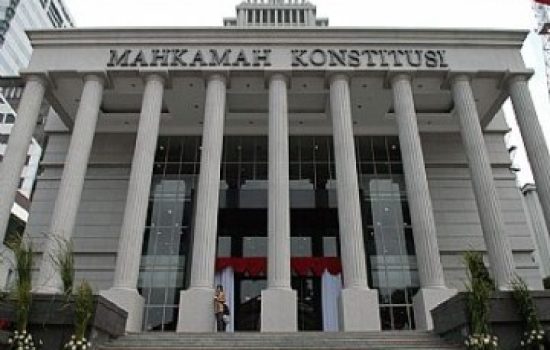Following the end of 2014 political year in which new president and member of house of representative has been elected, Indonesia will be entering 2015 which constitutes the first year where the new administration will project its future regulation plan. During his campaign, legal reform has been one of the most ambitious agenda proclaimed by President Joko Widodo. The legal itself comprised of various aspects, one of the important aspect under the framework of legal reform is reformation on criminal law and criminal justice system.
Just couple weeks ago, the Government through National Development Planning Agency (Bappenas) has issued Mid-Term Recapitulation of Regulatory Plan Framework for 2015 – 2019 and regulatory plan on 2015. Based on the monitoring performed by ICJR there are 21 new draft bills or amendment that related to agenda on reforming criminal law and criminal justice system. Some of those are significantly crucial matters, such as draft of Indonesia Criminal Code (KUHP) draft bill, Indonesia Criminal Procedural Law (KUHAP) draft bill, Amendment of Law on Eradication of Corruption, drafting of laws on assets seizing, drafting od laws on limitation of cash transaction, and government regulation and presidential regulation as implementation of several existing laws, such as government regulation and presidential regulation on Juvenile Justice System (SPPA). From this 2015 – 2019 mid-term regulatory plan, ICJR noted several aspects that urgently needs to be monitored, namely:
In general on national criminal law reformation, legislation program prepared by the government above constitutes unfinished homework of Susilo Bambang Yudhoyono administration. In nutshell, there is no significant different between regulatory plan that has been prepared for 2015 with the one made in 2014. In fact, most of the draft bills are “debt” of former government which has resulted to a great delay for drafting the implementation regulation of the draft bills.
On the other hand, there are number of important regulations that are not included in the government’s regulatory plan, for example: Draft Bill on Ratification of Rome Statue, Draft Bill on Ratification of International Convention for the Protection of All Persons From Enforced Disappearance, Draft Bill on Anti-Torture, Draft Bill on Ratification of Optional Protocol to the Convention against Torture, and other draft bills which is fundamental part in reforming criminal sector in Indonesia. ICJR regretted the facts that the before said draft bills were not included to government’s regulatory plan considering the importance of those regulations. For instance, the discussion of Draft Bill on Anti-Torture has become under the international spotlight, even though the government through the Ministerial of Law and Human Rights and Ministerial of Foreign Affairs has taken the initiative to further discuss the Draft Bill. Other example is the implementation regulation of Law No. 31 of 2014 on Amendment to Law No. 13 of 2006 on Witness and Victim Protection. There is no single provision under the Law No. 31 of 2014 that mandates further implementation of the law, whereas protection on witness and victim is substantial component in reforming criminal law and criminal justice system.
Specific to Draft Bill on Indonesia Criminal Code (KUHP) and Draft Bill on Criminal Procedural Law (KUHAP) which is the foundation of all criminal law and criminal justice system reformation agenda, ICJR calls for the government and lawmaker to open public participation in monitoring every discussion level of these draft bills. Moreover, the government is urged to reformulate the Draft Bill on Indonesia Criminal Code before submitting it to the house of representative for further discussion. The government must reexamine several provision in the Draft Bill on Indonesia Criminal Code, as based on ICJR’s assessment the discussion of this draft bill at the previous administration of house of representative has shown a poor quality of discussion.
Meanwhile for Draft Bill on Criminal Law, ICJR encourage for the existing draft bill to be reviewed as well as to reconsider the effect of total codification option that was suggested in formulating the draft bill. ICJR viewed that the option for re-codifying the draft bill would create another significant problem, including when implementing the criminalization policy. ICJR contended that the house of representative will be likely to face difficulty if the government persists to re-codifying the entire Draft Bill on Criminal Law.
In regards to the proposed Amendment of Law on Eradication of Corruption, and the initiation to discuss new law on asset seizure and limitation of cash transaction, ICJR believed that the Law on asset seizure will have significant consequences on criminal law in general, hence the discussion for this law should be prioritized. However, careful attention needs to be taken when amending the anti-corruption law as to avoid any measure in weakening the existing regulations.
While ICJR welcome the initiate taken by the government to amend Law on Correctional, which also part of priority regulatory plan, the ICJR reminded the government to gather input from every sectors and stakeholder in respect of this amendment. The amendment to Law on Correctional must be in line with Draft Bill on Criminal Law, and there must be no room for contradiction between two regulations.
Lastly, the ICJR give special note in respect of provisions that are related to information and electronic transaction, protection of personal information, interception and privacy rights. ICJR calls for the government to perform total reformation on these sectors. In regards of privacy rights matter, the government fails to responds several issues, such as internet censorship, interception and poor regulation on criminal sanction in sectorial laws. Information and Electronic System Law and its implementing regulations for instances, the trend to impose serious criminal sanction over unclear and ambiguous criminal action is still increasing. In regards to Draft Bill on Interception, the government and lawmaker must carefully draft the draft bill to ensure privacy rights is protected and also to incorporate consideration taken by the Constitutional Court as the foundation in drafting the law.
Regulatory Plan on Criminal Sector in 2015
| No | Concerning | Ministerial/Institution in Charge |
| Mid-Term Regulatory Plan | ||
| 1 | Amendment of Law No.23 of 2004 on Elimination of Domestic Violence | The Ministerial of Woman Empowerments and Child Protection |
| 2 | Draft Bill on Mutual Legal Assistance | Ministerial of Law and Human Rights |
| 3 | Amendment of Law No. 11 of 2008 on Information and Technology Information | Ministerial of Communication and Information Technology |
| 4 | Draft Bill on Interception Procedure | Ministerial of Communication and Information Technology |
| 5 | Draft Bill on Protection of Personal Data and Information | Ministerial of Communication and Information Technology |
| Mid-Term Government Regulation | ||
| 1 | Draft Government Regulation on Protection of Strategic Electronic Date | Ministerial of Communication and Information Technology |
| Mid-Term Presidential Regulation | ||
| 1 | Draft Presidential Regulation on National Interception Center | Ministerial of Communication and Information Technology |
| Draft Bill in 2015 | ||
| 1 | Amendment of Law on Correctional | Ministerial of Law and Human Rights |
| 2 | Law on Asset Seizure | Ministerial of Law and Human Rights |
| 3 | Law on Limitation of Cash Transaction | Ministerial of Law and Human Rights |
| 4 | Amendment of Criminal Code (KUHP) and Criminal Procedural Law (KUHAP) | Ministerial of Law and Human Rights |
| 5 | Amendment of Law on Eradication of Corruption | Ministerial of Law and Human Rights |
| Government Regulation in 2015 | ||
| 1 | Draft Government Regulation on Procedure of Coordination, Evaluation, and Reporting Activity of Juvenile Justice System | Ministerial of Woman Empowerments and Child Protection |
| 2 | Draft Government Regulation on Guidance for Implementing Diversion Process, and Procedure and Coordination of Diversion | Ministerial of Law and Human Rights |
| 3 | Draft Government Regulation on Requirements and Procedure to Determine and Arrange Education, Development and Mentoring Program for Juvenile that is Allegedly Committing Crime | Ministerial of Law and Human Rights |
| 4 | Draft Government Regulation on Guidance for Juvenile Case Registration | Ministerial of Law and Human Rights |
| 5 | Draft Government Regulation on Forms and Procedure to Implement Juvenile Criminal Sanction | Ministerial of Law and Human Rights |
| 6 | Draft Government Regulation on Protection Measures Penalties for Juvenile | Ministerial of Law and Human Rights |
| Presidential Regulation in 2015 | ||
| 1 | Draft Presidential Regulation on Rights of Childs as Victims and Witness | Ministerial of Law and Human Rights |
| 2 | Draft Presidential Regulation on Organizing Education and Training Program for Law Enforcers | Ministerial of Law and Human Rights |
| 3 | Draft Presidential Regulation on Implementation of 2015 – 2019 Human Rights National Action Plan | Ministerial of Law and Human Rights |
Important note addressed by ICJR is on Juvenile Justice Law. Since, 2012 until the end of 2014, the government is unable to complete any implementation regulation of the Juvenile Justice Law. Although all the government has time until July 2015 in drafting such implementation regulation, ICJR predicted that the quality discussion of the implementation regulation will be at the stake considering the government only has few months to draft regulations with considerable broad aspects. Beside the short due time in completing the implementation regulation, the government tends to have slow movement in initiating discussion of the regulation, this is further worsened by limited access granted by the government to public or stakeholder.




